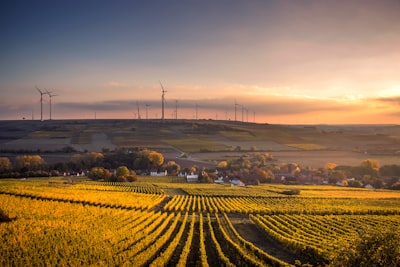How to Update Your Farm Insurance as Your Operation Grows
Farms form an essential backbone of the United States, providing food and other critical goods to millions of American families. However, farms must also account for significant risk levels, as daily operations often involve motor vehicles, heavy machinery, sharp tools, hazardous chemicals and large animals. This makes adequate insurance necessary, and understanding how coverage may need to change as your farm grows is critical. 
What Is Farm Insurance?
You should first understand that farm insurance may not be available as a named product from all insurance carriers. Instead, this term may refer to a collection of separate insurance policies that, when woven together, cast a versatile and robust financial safety net.
What May Change About Your Insurance Needs Over Time?
Your farm is unique, as are its insurance needs. Even when compared with neighboring farms or those that may be the same size and raise the same crops, there are likely specific circumstances for which you must account. Furthermore, assembling your farm’s insurance portfolio should not be considered a one-time responsibility. As your business grows and evolves, you should reassess your coverage, accounting for the following possible changes:
- Increasing coverage limits—Larger farms generally require higher policy limits, as these determine the maximum amount of financial aid you could receive in response to covered losses. For example, if your farm has appreciated in value up to $500,000, but you still only have $400,000 in coverage from an outdated policy, you’d need to come up with $100,000 in the event of a total loss.
- Needing new policies—Even the types of insurance you need for your farm could change over time. For instance, if you start off only growing crops, you might not even consider livestock insurance. However, if you add animals to your farm at a later date, you’d want to secure coverage. Similarly, if you begin using more digital technology in your operations, you may be in greater need of cyber liability insurance.
- Adding special options—Understanding endorsements and other customizable additions for your farm insurance can be invaluable. Consider how crop insurance may cover many common perils but still require paying a deductible following losses. However, crop-hail insurance could be a helpful option, as in situations where only a small part of your farm is hit by hail, you could receive compensation without having to meet a deductible.
We’re Here to Help You Update Your Coverage
Contact Churchill Insurance today to speak with one of our knowledgeable agents and ensure your farm’s coverage is up to date.
This blog is intended for informational and educational use only. It is not exhaustive and should not be construed as legal advice. Please contact your insurance professional for further information.